Did you know that savoy cabbage is not only a delicious addition to your meals but also a highly nutritious vegetable? This humble leafy green has been overshadowed by its more popular counterparts, but it’s time to shine a spotlight on savoy cabbage and explore its incredible benefits and versatility in the kitchen.
Growing and Harvesting Savoy Cabbage
Savoy cabbage is grown and harvested in various states across the United States, including California, Florida, Texas, and New York. The cultivation process involves careful planting, nurturing, and harvesting to ensure the best quality and yield.
When it comes to cabbage production, farmers plant savoy cabbage either from seeds or seedlings. The planting time depends on the chosen method, with seed-grown cabbage taking anywhere from 65 to 180 days to reach harvest, while seedlings can be ready in 60 to 100 days.
California, renowned for its fertile lands, emerges as the leading producer of cabbage, with over 14,000 acres dedicated to savoy cabbage cultivation. The state harvests more than 270,000 tons of this nutritious leafy green annually.
| State | Acreage Planted | Annual Harvest (Tons) |
|---|---|---|
| California | 14,000 | 270,000 |
| Florida | – | – |
| Texas | – | – |
| New York | – | – |
After nurturing the cabbage plants, it’s time for the harvest. Savoy cabbage is harvested by hand in the fields, ensuring each head is carefully inspected for quality. Once harvested, the cabbage heads are packed into cartons or large bins, depending on their designated use.
Savoy cabbage is sometimes packed into large bins for processing as coleslaw mix, which is a popular way to enjoy this nutritious vegetable. The harvested cabbage heads are handled with care and transported for further distribution and processing.
By employing industry-leading growing and harvesting practices, farmers across the United States ensure a steady supply of fresh and nutritious savoy cabbage, meeting the demands of both consumers and the food industry.
Versatility of Savoy Cabbage in Cooking
Savoy cabbage is a versatile leafy green that adds a delicious touch to a variety of dishes. Whether you’re looking for easy weeknight meals or savory dinner party recipes, cooking with savoy cabbage opens up a world of culinary possibilities. Its unique texture and mild flavor make it a standout ingredient in your kitchen.
When it comes to cooking with savoy cabbage, the possibilities are endless. Here are some ideas to inspire you:
- Stir-Fried Savoy Cabbage: Sauté savoy cabbage with garlic, ginger, and a splash of soy sauce for a quick and healthy side dish.
- Braised Savoy Cabbage: Slowly cook savoy cabbage with onions, broth, and herbs for a comforting and flavorful accompaniment to roasted meats.
- Stuffed Savoy Cabbage Rolls: Fill blanched savoy cabbage leaves with a mixture of ground meat, rice, and spices, then bake them in a tangy tomato sauce for a satisfying and hearty meal.
- Savoy Cabbage Soup: Simmer savoy cabbage with vegetables, beans, and herbs for a nourishing and satisfying soup that’s perfect for chilly days.
- Savoy Cabbage Salad: Shred savoy cabbage and toss it with a zesty vinaigrette, grated carrots, and toasted nuts for a refreshing and crunchy salad.
Savoy cabbage’s versatility doesn’t stop there. Its leaves can be used as a natural wrapping for flavorful fillings, adding an extra layer of taste and texture to your dishes. From savory meat fillings to vegetarian options, the possibilities are endless.
“Savoy cabbage’s frilly leaves bring a beautiful and delicate touch to any dish. Its texture adds depth, while its flavor complements a wide range of ingredients.” – Chef Julia Turner
To inspire your culinary creativity even further, I’ve included a table showcasing some delightful recipes that feature the versatile savoy cabbage:
| Recipe | Description |
|---|---|
| Savoy Cabbage Rolls | A classic recipe where savoy cabbage leaves are filled with a flavorful mixture of ground beef, rice, and herbs, then baked in a tangy tomato sauce. |
| Crispy Savoy Cabbage Slaw | A refreshing slaw made with thinly sliced savoy cabbage, shredded carrots, and a tangy vinaigrette, topped with crispy bacon and toasted walnuts. |
| Savory Savoy Cabbage Stir-Fry | A quick and easy stir-fry dish featuring sautéed savoy cabbage, garlic, ginger, and your choice of protein, all cooked to perfection in a savory sauce. |
| Braised Savoy Cabbage with Sausage | A hearty dish where savoy cabbage is slow-cooked with onions, carrots, and sausage, creating a comforting and flavorful one-pot meal. |
With savoy cabbage, you can easily elevate your meals with its delightful taste and versatility. From simple and healthy stir-fries to comforting braises and show-stopping cabbage rolls, the possibilities are endless. So go ahead, get creative in your kitchen and enjoy the deliciousness of savoy cabbage!
Health Benefits of Savoy Cabbage
Savoy cabbage is not only delicious but also incredibly healthy. It offers a variety of health benefits that make it a valuable addition to your diet.
Nutrition Facts of Savoy Cabbage
Let’s begin by exploring the nutrition facts of savoy cabbage. Here’s a breakdown of the key nutrients found in a 100-gram serving:
| Nutrient | Amount per 100g |
|---|---|
| Calories | 27 |
| Total Fat | 0.4g |
| Protein | 3g |
| Total Carbohydrate | 5.1g |
| Dietary Fiber | 3.1g |
| Vitamin C | 33mg |
| Vitamin K | 111μg |
| Folate | 32μg |
Savoy cabbage is low in calories and fat, making it an excellent choice if you’re watching your weight. It is also a good source of dietary fiber, which aids digestion and promotes feelings of fullness.
Savoy Cabbage Antioxidants
One of the standout features of savoy cabbage is its high antioxidant content. Antioxidants play a crucial role in protecting our bodies from oxidative stress and cell damage caused by free radicals.
The antioxidants found in savoy cabbage include beta-carotene and lutein. Beta-carotene is converted into vitamin A in the body and is essential for maintaining healthy vision, skin, and immune function.
Lutein is a yellow pigment that is known for its eye-protective properties. It is particularly beneficial for maintaining macular health and reducing the risk of age-related macular degeneration.
By incorporating savoy cabbage into your meals, you can boost your antioxidant intake and support your overall well-being.
“Savoy cabbage is not only incredibly delicious and versatile, but it also offers a range of health benefits. Its low calorie and fat content make it a great choice for weight management, and its rich vitamin C, vitamin K, and folate content support immune function and bone health. Additionally, the antioxidants found in savoy cabbage help protect the body against free radicals and promote overall well-being.”
Delicious Recipes with Savoy Cabbage
There are countless delicious recipes that can be made with savoy cabbage. Its mild and sweet flavor pairs perfectly with a variety of spices and ingredients, allowing for endless culinary possibilities.
Sautéed Savoy Cabbage with Garlic and Chili
This simple recipe brings out the natural flavors of savoy cabbage with the addition of garlic and chili. The cabbage is sautéed until tender-crisp, creating a delightful side dish or a light main course.
Stuffed Savoy Cabbage Rolls
These savory stuffed cabbage rolls are a crowd-pleasing favorite. The savoy cabbage leaves are filled with a delicious mixture of meat or vegetables, then baked until tender and topped with a flavorful sauce.
Braised Savoy Cabbage with Bacon or Sausage
Braising savoy cabbage with crispy bacon or savory sausage creates a hearty and comforting dish. The cabbage becomes tender and infused with rich flavors, making it a perfect accompaniment to roasted meats or a satisfying main course on its own.
Savory Savoy Cabbage Gratin
This indulgent gratin combines the sweetness of savoy cabbage with creamy cheese and a crispy breadcrumb topping. The dish is baked to perfection, resulting in a comforting and satisfying side dish that is sure to impress.
Savoy cabbage can also be used in a variety of other dishes, such as casseroles, soups, stews, stir-fries, and salads. Its versatility and delicate flavor make it an excellent addition to any recipe.
table {
width:100%;
border-collapse: collapse;
}
table, th, td {
border: 1px solid black;
}
th, td {
padding: 15px;
text-align: left;
}
th {
background-color: #f2f2f2;
}
caption {
caption-side: bottom;
font-style: italic;
margin-top: 10px;
}
| Recipe | Description |
|---|---|
| Sautéed Savoy Cabbage with Garlic and Chili | A quick and flavorful side dish or light main course. |
| Stuffed Savoy Cabbage Rolls | Savory cabbage leaves filled with a delicious meat or vegetable mixture. |
| Braised Savoy Cabbage with Bacon or Sausage | Tender cabbage infused with the rich flavors of bacon or sausage. |
| Savory Savoy Cabbage Gratin | A creamy and crispy gratin featuring sweet savoy cabbage. |
The Unique Characteristics of Savoy Cabbage
Savoy cabbage stands out with its unique characteristics that set it apart from regular cabbage. Its texture and flavor make it a versatile and popular ingredient in various dishes.
Texture Variation
The leaves of savoy cabbage have a distinct texture that varies from the outer leaves towards the middle. The outer leaves are loose, frilly, and delicate, while the innermost leaves are pale yellow, firm, and crisp. This texture variation allows for different cooking methods and applications, making savoy cabbage a versatile choice in the kitchen.
Mild and Sweet Flavor
Compared to green and red cabbage, savoy cabbage has a milder and sweeter flavor profile. It lacks the peppery taste commonly associated with other types of cabbage. This relatively neutral flavor makes savoy cabbage adaptable to a wide range of dishes and flavor combinations.
To visually showcase the unique characteristics of savoy cabbage, here is an image of this versatile leafy green:
Tips for Selecting and Storing Savoy Cabbage
When it comes to selecting savoy cabbage, it’s important to choose heads that are firm and heavy for their size, with vibrant and fresh colors. Avoid any heads with brown or wilted outer leaves, as they may indicate a lack of freshness.
To ensure the longevity of your savoy cabbage, follow these simple storage tips:
- If you have whole unwrapped heads of savoy cabbage, store them in the crisper drawer of the refrigerator. This will help maintain their freshness for up to 2 weeks.
- Once you’ve cut into a head of savoy cabbage, make sure to tightly wrap the remaining portion and store it in the crisper drawer. Use it within 2 to 3 days to maintain optimal freshness.
- It’s best to wash your savoy cabbage just before using it, as washing it too far in advance may accelerate spoilage. Rinse the leaves thoroughly under cold water to remove any dirt or debris.
It’s worth noting that savoy cabbage is sometimes mistaken for napa cabbage. However, the easiest way to tell them apart is by their shape. Savoy cabbage has a round shape, while napa cabbage is oblong.
By following these tips, you can ensure that your savoy cabbage stays fresh and flavorful for as long as possible.
Here’s a summarized version of the tips for selecting and storing savoy cabbage:
| Selection | Storage |
|---|---|
| • Look for firm and heavy heads with bright colors | • Store whole unwrapped heads in the crisper drawer of the refrigerator for up to 2 weeks |
| • Avoid brown or wilted outer leaves | • Once cut, tightly wrap the remaining portion and store in the crisper drawer, using within 2-3 days |
| • Wash just before use to avoid spoiling | • Rinse leaves under cold water to remove dirt or debris |
The Nutritional Value of Savoy Cabbage
Savoy cabbage is a nutrient-rich vegetable that offers a wide range of health benefits. It is low in calories and fat, making it an excellent choice for those watching their weight. But don’t let its lightness fool you; this leafy green is packed with important vitamins and minerals, making it a powerhouse of nutrients.
Here are some key nutritional facts about savoy cabbage:
- Vitamins: Savoy cabbage is a good source of vitamin C, vitamin K, and folate. Vitamin C is an essential nutrient that supports the immune system and helps protect against oxidative stress. Vitamin K plays a crucial role in blood clotting and bone health. Folate is vital for cell growth and development, making it particularly important for pregnant women.
- Minerals: Savoy cabbage contains essential minerals such as potassium, calcium, and magnesium. Potassium helps maintain healthy blood pressure levels, while calcium is essential for strong bones and teeth. Magnesium plays a role in over 300 enzymatic reactions in the body and contributes to muscle and nerve function, as well as regulating blood sugar levels.
Savoy cabbage also offers other health benefits. It is rich in dietary fiber, which promotes digestive health and regular bowel movements. Additionally, it contains antioxidants that help protect against cellular damage caused by free radicals.
“Savoy cabbage is not only delicious, but it’s also a nutritional powerhouse. Packed with vitamins, minerals, and antioxidants, it’s a great addition to any balanced diet!”
Conclusion
In conclusion, savoy cabbage is a versatile and nutritious leafy green vegetable that offers a wide range of health benefits. Packed with essential nutrients such as vitamins C and K, folate, and minerals, it is a powerhouse of nutrition. Whether you prefer sautéing, braising, or enjoying it raw in salads, savoy cabbage can be incorporated into various dishes and cuisines due to its mild and sweet flavor.
By including savoy cabbage in your diet, you can support digestive health, boost your immune system, and maintain a healthy weight. Its low calorie and fat content make it an excellent choice for those looking to manage their weight effectively. Additionally, its high fiber content promotes regular bowel movements and aids in maintaining a healthy digestive system.
So, next time you’re planning your meals, consider adding this nutritious green vegetable to your grocery list. With its numerous health benefits and versatility in the kitchen, savoy cabbage is a great addition to any balanced diet. Explore new recipes, experiment with different cooking methods, and savor the deliciousness and benefits of savoy cabbage.

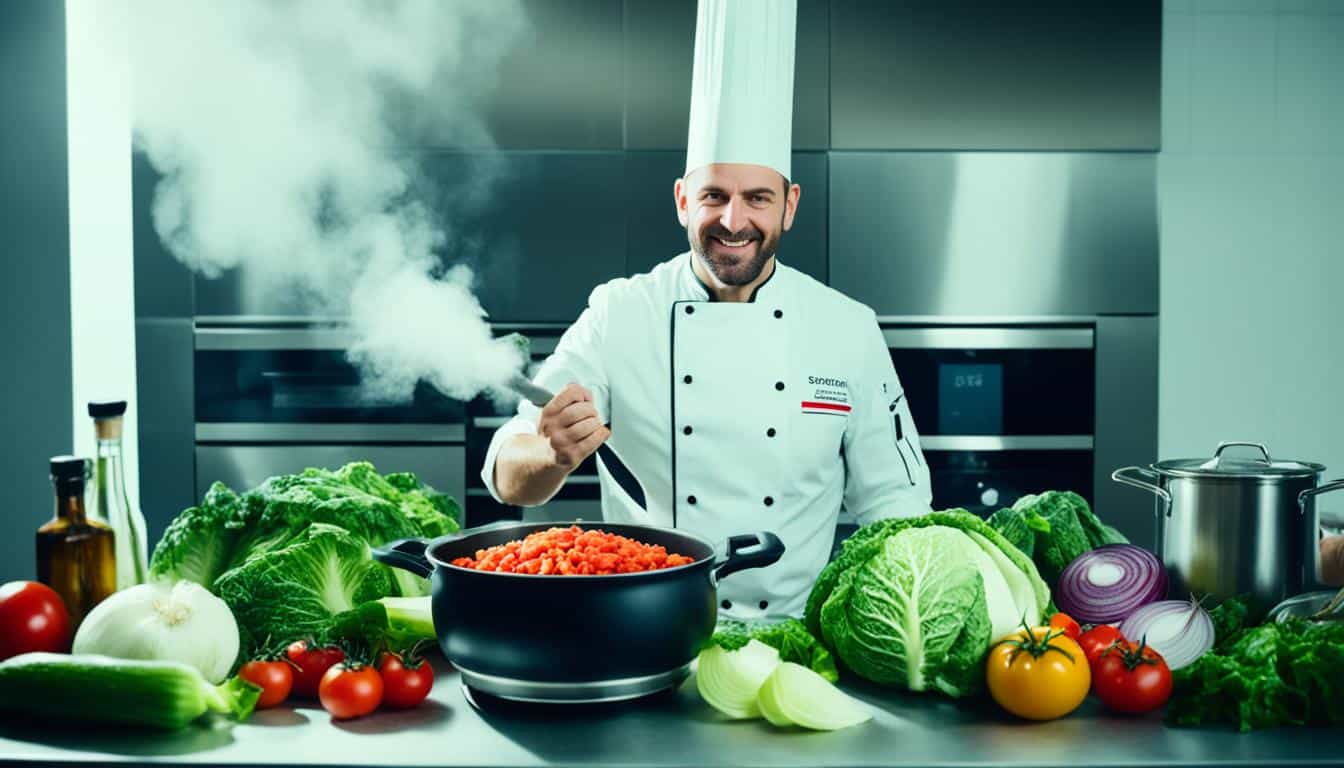
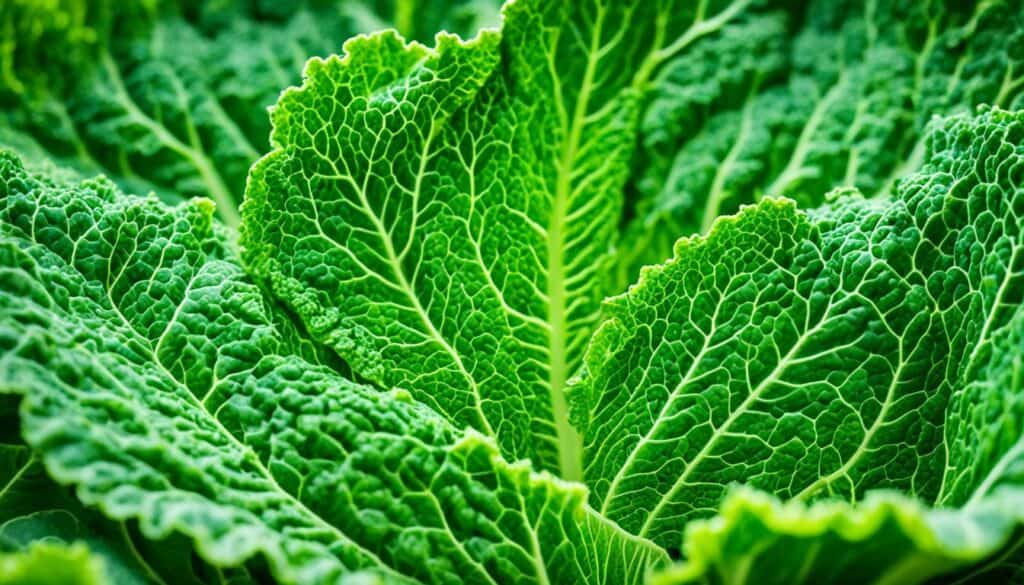
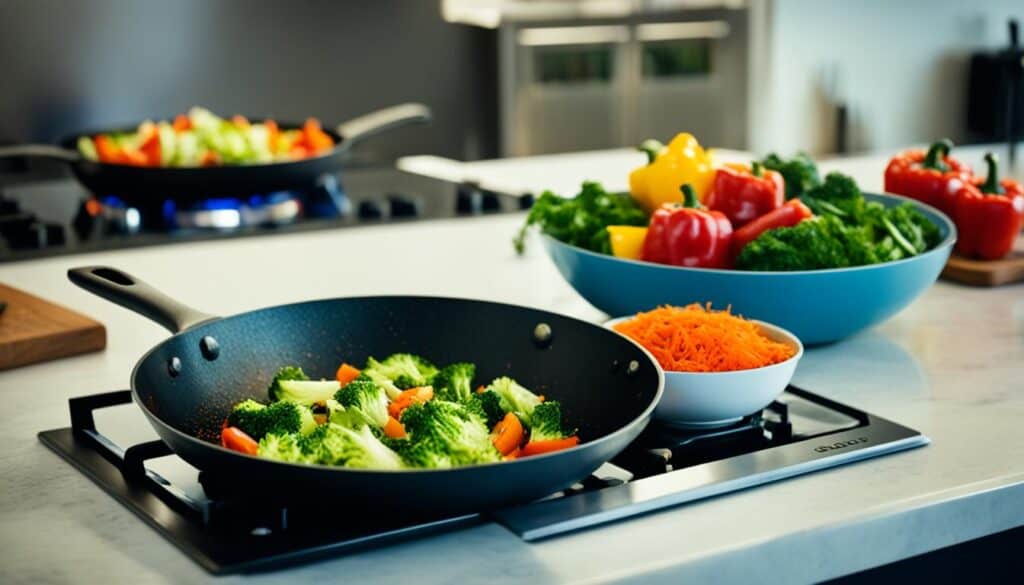
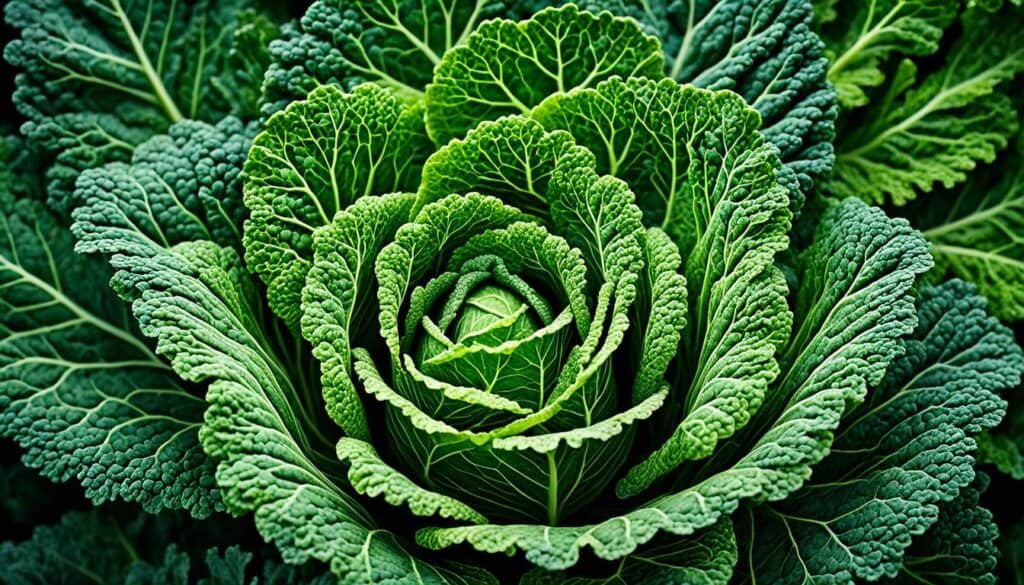
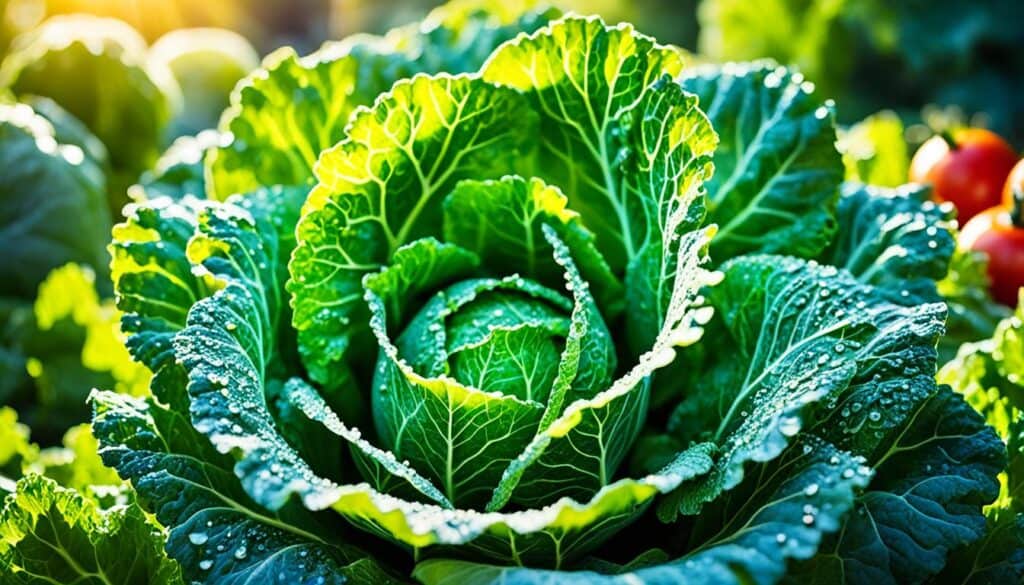



Leave a Reply